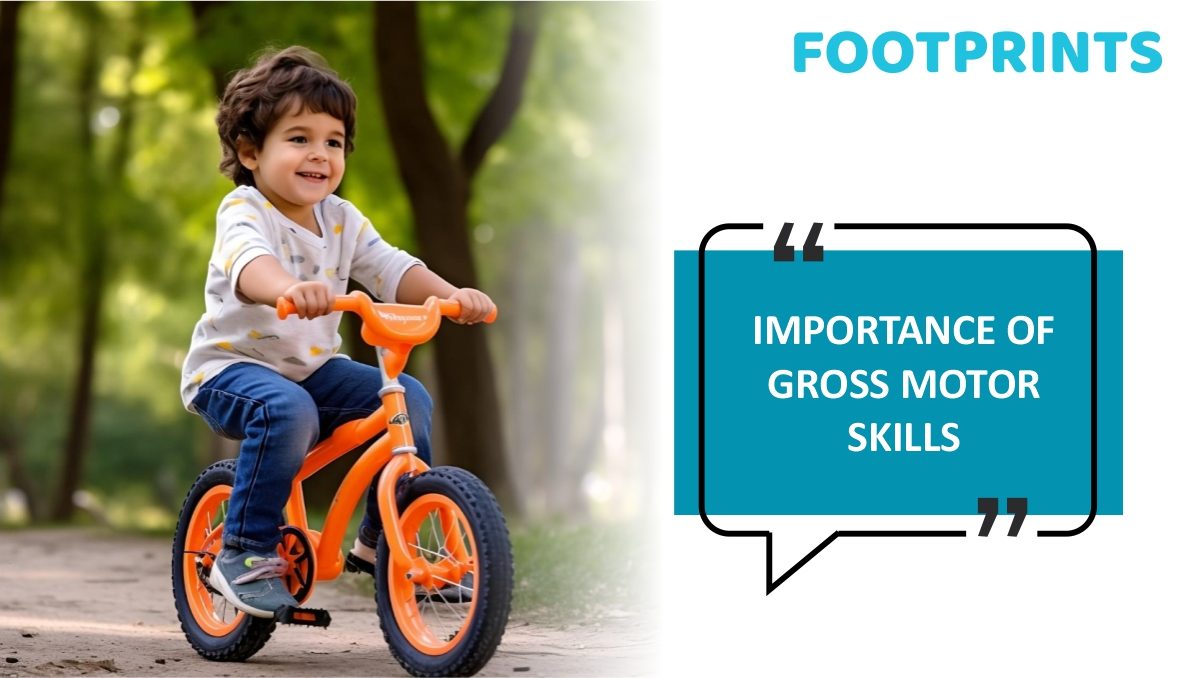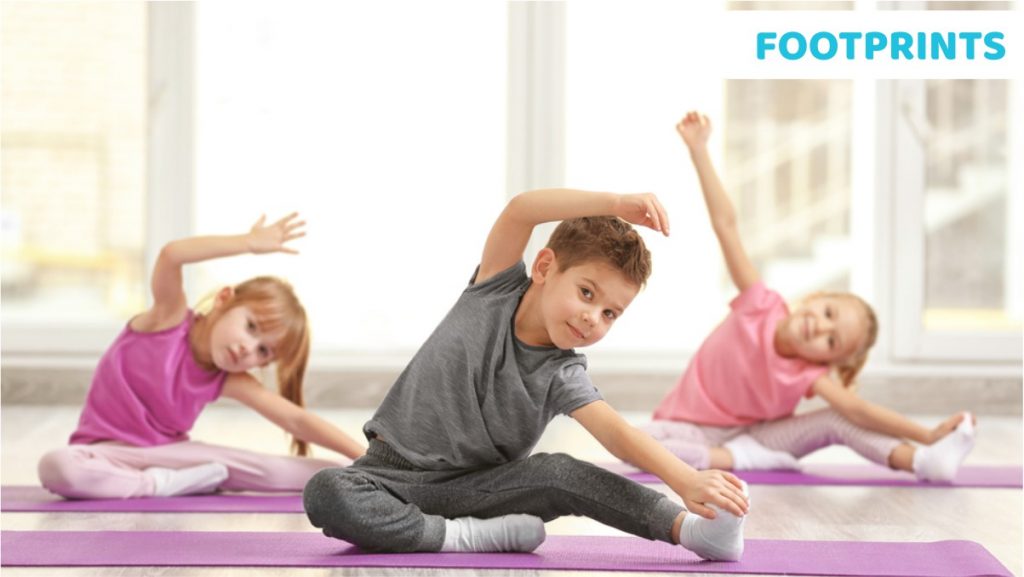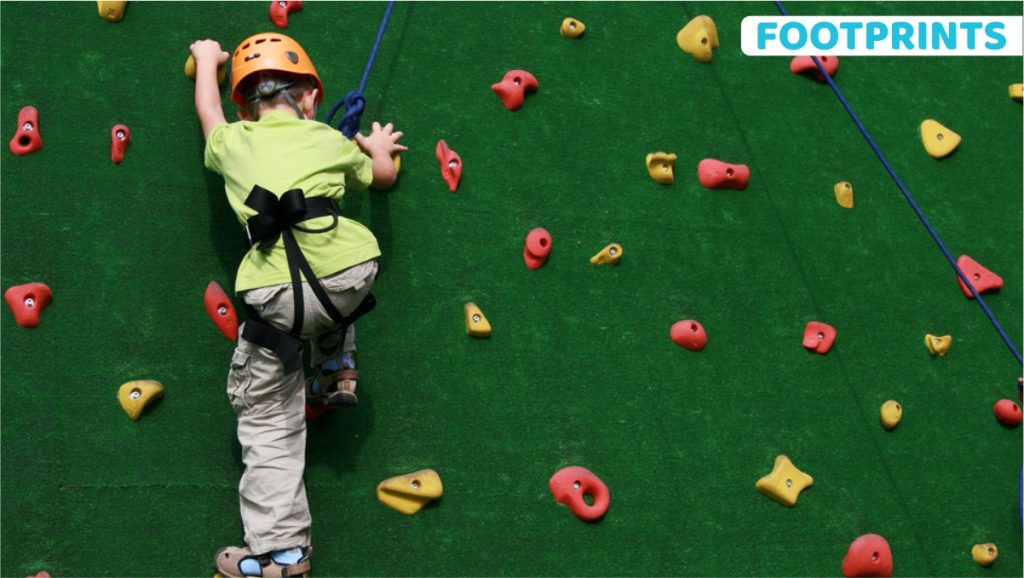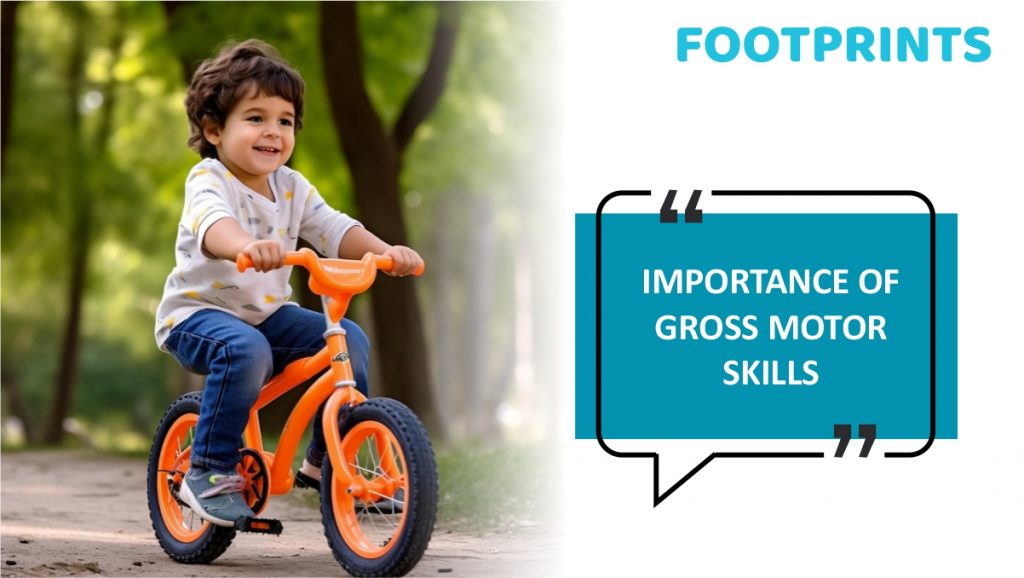
For Children to engage in physical activities and meet developmental milestones at the proper age, they must acquire motor skills, a crucial aspect of child development. These abilities also call upon motor planning, or the capacity to formulate and carry out a motion plan. For instance, a youngster with weak motor planning abilities may be able to climb a sliding ladder with strength and muscle tone but cannot place their feet correctly or in the proper order to reach the top. You sure would have heard that a growing child develops gross and fine motor skills. Knowing gross motor skills and why they are essential will be helpful.
Gross motor skill development involves the large arms, legs, and torso muscles. With the development of Gross Motor Skills, we can undertake whole-body movements such as running, kicking, lifting, and more. Of course, these skills develop gradually. For a 2-month-old, for instance, gross motor skills involve lifting their head, kicking with both legs and more. At nine months, gross motor activities include crawling; at two years, it would mean walking around and jumping.
Gross vs fine Motor skills
Clarifying the difference between gross and fine motor skills is also essential. Gross motor skills pertain to activities that involve significant muscle movement. Examples include walking and running. On the other hand, fine motor skills involve using smaller muscles. Examples of such activities include writing and drawing.

Why are gross motor skills important?
As the above examples show, gross motor skills are helpful for children to perform everyday functions, from walking and running to self-care skills like dressing up. While these seem like pretty easy skills, the fact is that they are more complex than they might seem. Among other things, they involve:
- Coordination of the muscles and neurological system
- Balance
- Body awareness
- Physical strength
- Reaction time
- They form the basis for fine motor skills that help us make small movements. Think about writing with a pencil.
If we have poor gross motor skills, the impact can be felt in several areas of life. They can also take a considerable toll on the self-esteem of the child.
What are some of the activities that you can undertake to help your child develop gross motor skills?
As discussed above, it is essential to remember that there are various developmental milestones for gross motor activities. What a child can do at four years of age, he or she cannot be expected to do at 2. It is essential to keep this aspect in mind while undertaking any activities. That said, some of the activities that can help with the child’s gross motor skills include:
Trampoline
Jumping on the trampoline can be a great way to improve balance. A visit to the trampoline park will be just the socialization opportunity your child requires.
Hopscotch
Indulge in a game of Hopscotch for the child to develop balance and coordination.
Martial Arts
Enrolling your child in martial arts can help them develop strength in their arms and legs. It can also help the child build balance.
Playground
Playing in the playground can be an excellent way to develop those gross motor skills. Let them swing on the swing set or use rope ladders, wobble bridges, and more.
Playing with bubbles
Let the child run around chasing bubbles and trying to pop as many. Similarly, you could play with balloons. It will be great to see the child changing directions, jumping around, and more to be able to catch the balloon.
Tricycles
Get the child to sit on a tricycle with a handle as you push the tricycle. The child practices pedaling and some amount of balance.
Dancing
If your child loves dancing, that’s a great exercise in motor skill development. It also helps the child develop stamina, balance, and coordination. Play the child’s favorite song and groove!
Set up an obstacle course
The child will have fun jumping over, crawling, running, balancing, and more through an obstacle course. It is a great way to develop gross motor skills and get much-needed exercise!

Gross Motor Activities for Toddlers
Some gross motor activities for toddlers mainly include:
- Create a series of lines that the toddler can jump over
- Scavenger Hunt
- Dancing
- Pushing the laundry basket
- Keeping a balloon in the air
- Obstacle maze
If you have a hunch that your child is having issues with age-appropriate gross motor skills, look for these signs:
- Does the child generally try to avoid physical tasks? Or if the child does perform these tasks, does he rush through them?
- Do they find age-appropriate physical tasks challenging?
Every so often, problems in gross motor skills in childhood are caused by Development Coordination Disorder or what is commonly known as DCD. DCD affects not only gross motor skills but also fine motor skills. Some of the symptoms of DCD include:
- An unsteady walk
- Difficult in going down the stairs.
- Dropping objects- DCD is sometimes also known as clumsy child syndrome,”
- Running into others or tripping
- Difficulty in activities such as tying shoes, putting on clothes, etc.
- Difficulty performing school activities, such as writing, coloring, and more.
Do not hesitate to consult a professional if there is an issue. DCD is diagnosed when:
- The child shows delays in reaching motor milestones.
- The condition significantly interferes with day-to-day activities.
- The symptoms begin early in the child’s life.
- Difficulties with motor skills are not due to intellectual disability, visual impairment, or brain disorders.
In case the child is detected with DCD, do not lose heart because there are ways to manage it. DCD is treated with a long-term program of education, physical therapy, occupational therapy, and social skills training. With physical education, the child develops coordination, balance, and more. It is also recommended that the child take up some individual sport, such as swimming or cycling. In addition, with the right occupational therapy, the child will master his or her daily activities and help the child succeed in school.
At Footprints, a chain of preschools and daycares that has emerged as the preferred parenting partner, our focus is on the holistic development of children. Footprints Pre-School program offers opportunities for children to explore and learn through a carefully designed methodology of the HighScope Curriculum called “active participatory learning”.
Here’s to raising children while ensuring their all-round growth and development!

Amita is an experienced educator with over 30 years of experience. She has an outstanding understanding of child development, having worked with various age groups for prestigious businesses. She has been dedicated to handling Footprints’s Curriculum and Delivery department for the past decade. Amita’s credentials include being one of India’s few HighScope Curriculum certified trainers and volunteering as a course leader for Landmark Education, the world’s largest training firm.


